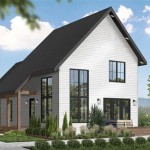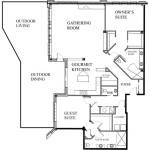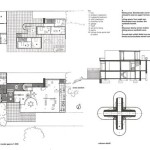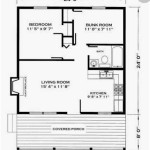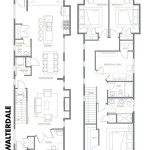Essential Aspects of Tiny Homes Floor Plans Free
Tiny homes, also known as micro-dwellings, have gained significant popularity in recent years due to their affordability, sustainability, and unique charm. One of the most crucial aspects of designing a tiny home is creating a well-thought-out floor plan that maximizes space utilization and functionality while adhering to building codes and regulations.
1. Space Optimization
Every inch of space in a tiny home is precious, so optimizing its utilization is essential. Consider using vertical space with lofts, built-in shelves, and cabinetry. Utilize corners with corner cabinets and curved furniture. Multipurpose furniture, such as convertible sofas and storage ottomans, can serve multiple functions, saving valuable square footage.
2. Layout and Flow
The layout of a tiny home should ensure a smooth flow between different areas. Design an open floor plan to create a spacious feel. Separate areas for sleeping, cooking, bathroom, and storage using partitions, screens, or curtains. Ensure adequate pathways to move around comfortably and avoid crowded or cluttered spaces.
3. Functionality and Accessibility
Consider the functionality of each space in the tiny home. The kitchen should be well-equipped with appliances and storage, even on a smaller scale. The bathroom should provide essential amenities while optimizing space. Accessibility is equally important, ensuring easy access to all areas of the home, especially for individuals with mobility limitations.
4. Natural Lighting and Ventilation
Natural light can make a tiny home feel more spacious and inviting. Incorporate windows strategically to maximize natural light. Consider skylights or solar tubes for additional lighting. Proper ventilation is crucial for air circulation and moisture control. Design the floor plan to include windows and vents to ensure adequate ventilation throughout the home.
5. Storage and Organization
Storage is essential in any home, especially in a tiny one. Plan for ample storage space using built-in cabinets, shelves, drawers, and under-bed storage. Utilize vertical space for maximizing storage capacity. Keep clutter to a minimum by implementing organization systems, such as baskets, bins, and drawer organizers.
6. Building Codes and Regulations
When designing a tiny home floor plan, it is imperative to adhere to local building codes and zoning regulations. Consider the size restrictions, height requirements, and safety standards for tiny homes in your area. Ensure that the floor plan complies with these regulations to avoid potential issues during construction or legal disputes.
7. Customization and Personalization
While there are many pre-designed tiny home floor plans available, customization is key to creating a home that truly reflects your lifestyle and needs. Consider your personal preferences and requirements when selecting or designing a floor plan. Experiment with different layouts, materials, and finishes to create a unique and personalized tiny home.

27 Adorable Free Tiny House Floor Plans Small

27 Adorable Free Tiny House Floor Plans Small

27 Adorable Free Tiny House Floor Plans Craft Mart

27 Adorable Free Tiny House Floor Plans Craft Mart

17 Do It Yourself Tiny Houses With Free Or Low Cost Plans House Design Floor

11 Delightful And Free Tiny House Plans To Floor

27 Adorable Free Tiny House Floor Plans Craft Mart

20 Free Diy Tiny House Plans To Help You Live The Small Happy Life

Free Floor Plan Tiny House Movement Tumbleweed Company Transpa Background Png Clipart Hiclipart

Free Tumbleweed Diy Tiny House Plans Houses

